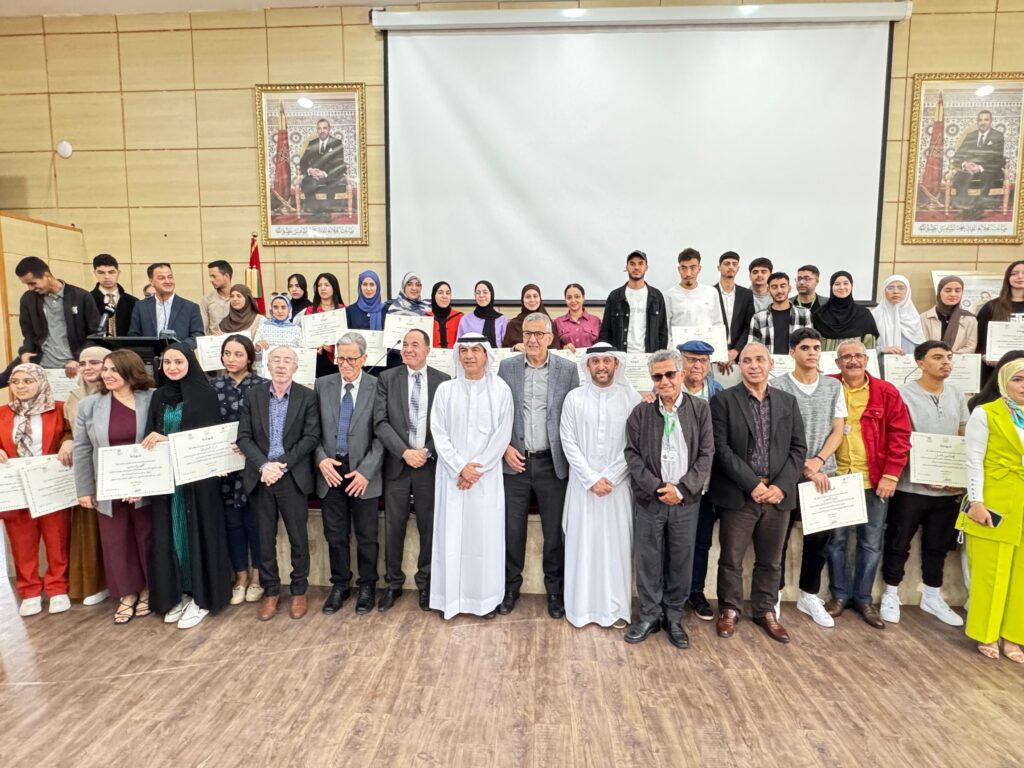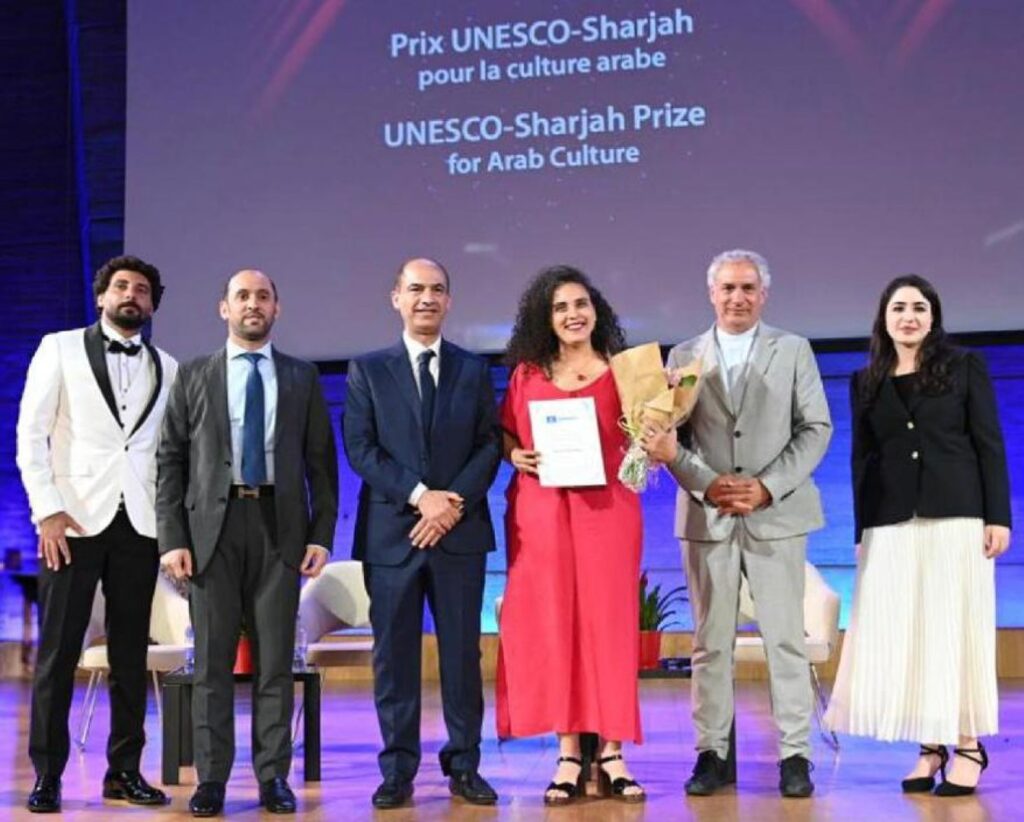The Moroccan Poets Festival concluded its sixth edition after three days of illustrious writing and celebrating the word.
The closing ceremony was held at the National School of Crafts and Arts in Tetouan, in the presence of Abdullah bin Mohammed Al Owais, Chairman of Sharjah Department of Culture; Professor Mohammed Ibrahim Al Qaseer, Director of the Cultural Affairs Department at the Department; Rachid Al Mustafa, Head of the Cooperation Department in the Culture Sector at the Moroccan Ministry of Youth, Culture, and Communication; Dr. Youssef Al Fahri, President of the Higher School of Teachers in Martil; Mukhlis Al Sagheer, Director of the House of Poetry in Tetouan; and a large number of writers, intellectuals, and university students.
Al Sagheer pointed out that the Moroccan Poets Festival strives to innovate with each new edition, and to grow in poetry and cultural resonance in the Arab world. He highlighted that the sixth edition enjoyed a prominent official presence, alongside a public audience with a passion for poetry and art.
He explained that the House of Poetry in Tetouan, founded in 2016, affirms its tireless efforts to organise a distinguished seventh edition next year, to celebrate its tenth anniversary.
Participants in the Moroccan Poets Festival agreed that Sharjah has become a pioneering model in supporting Arab culture and actively contributing to shaping a new generation of Arab intellectuals. They emphasised that Sharjah’s cultural, intellectual, and cultural achievements over the past decades were not a coincidence, but rather the result of the broad cultural vision of His Highness Sheikh Dr. Sultan bin Mohammed Al Qasimi, Supreme Council Member and Ruler of Sharjah. His Highness believes that culture is the cornerstone of human and societal development.
Participants believe that Sharjah’s experience represents a model to be emulated, as it has not only supported cultural production but has also strived to create an integrated knowledge environment that attracts new generations and instils in them a love of reading, thinking, and criticism. They explained that many young Arabs who have benefited from Sharjah’s cultural experiences have now become prominent voices in the fields of literature, thought, and the arts.
The second day of the festival featured a critical symposium titled “Poetry and the Performing Arts”. The speakers emphasised that when poetry is recited on stage, or combined with movement or music, it transforms into a performance art. This is where what is known as “the poetics of performance” emerges, where poetry emerges from the page and is embodied through the body, voice, gaze, and silence. They noted that at this moment, literature intersects with the live arts, providing the recipient with a multi-sensory artistic experience.
Speakers emphasised the intersection of poetry and performance, where word meets movement, voice meets silence. This is when a magic called the poetics of the performing arts is born; where the poem becomes a vibrant body, and the scene becomes a visual poem that is read by the eye and felt by the heart.
The Moroccan Poets Festival has an exceptional section, bringing the audience together with visually impaired poets at the Taha Hussein Institute in Tetouan, in a poetic and humane moment where poetry met with a number of visually impaired creatives who drew inspiration from life’s features and, from its details, wove their vast worlds.
The festival saw the participation of more than 40 poets, poetesses, intellectuals, and artists amidst a festive atmosphere of poetry and its creators. It honoured 83 students in a poetry writing workshop organised by the House of Poetry in Tetouan, in collaboration with the Faculty of Arabic Language at the Higher Teachers’ School in Martil.
Eighteen students were also honoured in the regional competition for Arabic Language Pioneers, organised by the House of Poetry in collaboration with more than 37 secondary and middle school educational institutions.
source/content: wam.ae (headline edited)
________________

______________
MOROCCO
